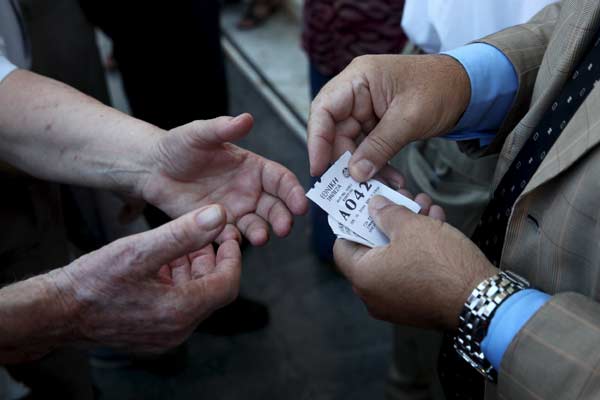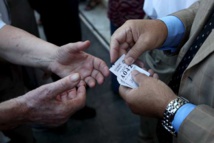With Greece holding up its end of the deal, Europe has moved to re-open funding to Greek’s crippled economy. The European Central Bank (ECB) increased emergency funding for Greece while still maintaining all previous capital controls in place.
Finance Ministers from the European Union had met in an emergency meeting and have approved 7 billion euros which ensure the smooth functioning of Greece’s economy. This bridge loan will also ensure that Greece will be able to pay back its bond payments to ECB next week as well as its arrears to the IMF.
The finalization of the approval for the loans will rest on the approval of the Germany parliament, Greek’s primary creditor. Greece will be glad to know that a majority of Germany’s conservative lawmakers approve of starting negotiations for further loans.
These twin lifelines which will reinvigorate Greek’s economy are thanks to Alexis Tsipras’s efforts in pursuing his colleagues to pass the necessary legislations so as to correct the waywardness of Greek’s financial system.
Although Tsipras delivered on his promise, passed the legislations and saved Greece from an economic collapse, his left-wing Syriza party however took a beating for passing the package. It is expected that Tsipras will reshuffle his cabinet and replace those who rebelled against him.
Tsipras is purported to have told aids that the rebels had created an "open trauma" in the party. He had no way other than to stick to the deal, in order to save the country from financial collapse. The seriousness of the situation can be gauged from the fact that Nikos Voutsis, the Interior minister’s saying snap polls could be held anytime in September or October "depending on developments".
German Finance Minister Wolfgang Schaeuble, who happens to be one of Greece's sternest critics, questioned whether it would ever get a third bailout, even after the parliamentary vote.
"We will now see in the negotiations whether there is even a way to get a new program, taking into account financing needs, which have risen incredibly," said Schaeuble on German radio.
On their part, Lithuanian and Finnish lawmakers have given their approval to begin talks on negotiations for the third bailout for Greece. Schaeuble said that although he would vote to open talks but he underlined the risks that surround the negotiations which are to be conducted over the next few weeks.
With the IMF warning that Greece’s massive public debt it too huge to manage without writing-off portions of it, Schaeuble’s view on this was that a writing-off of debt was incompatible with euro membership and doing so would possibly mean Greece would have to leave the euro, at least temporarily.
"But this would perhaps be the better way for Greece," said Schaeuble.
Having been on a conference call, Finance Ministers from the European Union agreed “in principle” to start talks for a new bailout package for Greece once it adopts the second set of reforms by 22nd July.
Despite reluctance coming from Britain and from the Czech Republic to contribute to the bridge loan, all 28 countries are expected to follow suit, after a compromise was found to use euro zone funds to guarantee their ring-fenced contributions.
The issue of debt relief was highlighted by the IMF in a report that it released last week which states that unless significant portions of Greece’s debt’s are written-off, the only available alternative would be to grant Greece a 30 year “debt service holiday on present and future loans or make large annual fiscal transfers to the Greek budget.” This is clearly not palatable to Eurozone creditors who do not want to tell their taxpayers that their money has been lent to Greece and is not coming back.
References:
http://www.reuters.com/article/2015/07/16/us-eurozone-greece-idUSKCN0PQ0GZ20150716
Finance Ministers from the European Union had met in an emergency meeting and have approved 7 billion euros which ensure the smooth functioning of Greece’s economy. This bridge loan will also ensure that Greece will be able to pay back its bond payments to ECB next week as well as its arrears to the IMF.
The finalization of the approval for the loans will rest on the approval of the Germany parliament, Greek’s primary creditor. Greece will be glad to know that a majority of Germany’s conservative lawmakers approve of starting negotiations for further loans.
These twin lifelines which will reinvigorate Greek’s economy are thanks to Alexis Tsipras’s efforts in pursuing his colleagues to pass the necessary legislations so as to correct the waywardness of Greek’s financial system.
Although Tsipras delivered on his promise, passed the legislations and saved Greece from an economic collapse, his left-wing Syriza party however took a beating for passing the package. It is expected that Tsipras will reshuffle his cabinet and replace those who rebelled against him.
Tsipras is purported to have told aids that the rebels had created an "open trauma" in the party. He had no way other than to stick to the deal, in order to save the country from financial collapse. The seriousness of the situation can be gauged from the fact that Nikos Voutsis, the Interior minister’s saying snap polls could be held anytime in September or October "depending on developments".
German Finance Minister Wolfgang Schaeuble, who happens to be one of Greece's sternest critics, questioned whether it would ever get a third bailout, even after the parliamentary vote.
"We will now see in the negotiations whether there is even a way to get a new program, taking into account financing needs, which have risen incredibly," said Schaeuble on German radio.
On their part, Lithuanian and Finnish lawmakers have given their approval to begin talks on negotiations for the third bailout for Greece. Schaeuble said that although he would vote to open talks but he underlined the risks that surround the negotiations which are to be conducted over the next few weeks.
With the IMF warning that Greece’s massive public debt it too huge to manage without writing-off portions of it, Schaeuble’s view on this was that a writing-off of debt was incompatible with euro membership and doing so would possibly mean Greece would have to leave the euro, at least temporarily.
"But this would perhaps be the better way for Greece," said Schaeuble.
Having been on a conference call, Finance Ministers from the European Union agreed “in principle” to start talks for a new bailout package for Greece once it adopts the second set of reforms by 22nd July.
Despite reluctance coming from Britain and from the Czech Republic to contribute to the bridge loan, all 28 countries are expected to follow suit, after a compromise was found to use euro zone funds to guarantee their ring-fenced contributions.
The issue of debt relief was highlighted by the IMF in a report that it released last week which states that unless significant portions of Greece’s debt’s are written-off, the only available alternative would be to grant Greece a 30 year “debt service holiday on present and future loans or make large annual fiscal transfers to the Greek budget.” This is clearly not palatable to Eurozone creditors who do not want to tell their taxpayers that their money has been lent to Greece and is not coming back.
References:
http://www.reuters.com/article/2015/07/16/us-eurozone-greece-idUSKCN0PQ0GZ20150716



















